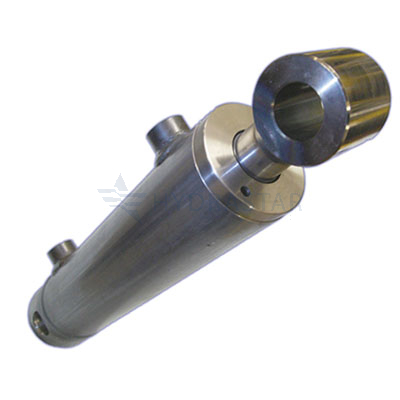Surface imperfections due to corrosion can impair the performance of your hydraulic cylinder rods, ultimately leading to seizures, failure, and shortened lifespans. In harsh marine and offshore environments, or when working with corrosive fluids, the problems can be particularly acute. It is important, therefore, to take countermeasures to protect your cylinder rods from damage and preserve your assets.
Corrosion Risks To Your Hydraulic Cylinder Rods
Harsh conditions can be very damaging to cylinder rods. Exposure to corrosive fluids can quickly cause pitting or scoring, impairing performance and smooth functioning. Irregular rod surfaces will wear away at seals, resulting in fluid leakage from the cylinder, a problem which worsens with each stroke. While, in principle, the best form of preservation is to park your equipment with cylinders fully retracted, this is clearly not possible for all use cases. So, what else can be done to preserve your rods?
Choosing The Right Materials
Of course, in the first instance, the quality of your cylinder rods is important. Hydraulic cylinder rods are typically plated with hard chrome. Hard chrome plating is distinct from cosmetic chrome, as it offers a durable and smooth finish that is quite effective on its own at resisting corrosion. This rod coating can also be ground for a precise fit, reducing the risk of fluid leakage and seal damage.
As well as the plating, it is also important to choose rods with a solid base material. A relatively soft inner metal will not provide sufficient solidity to avoid damage to the plating. The best option then is hardened steel, which is adequately impact-tolerant to protect the hard chrome surface plating.
What Surface Protections To Use
Even the best hard chrome plating is still subject to corrosion risk due to its micro-porosity. That means in harsh environments it is worth taking extra steps to protect your cylinder rods, such as using protective tape or sealant sprays.
The use of protective tape can be very effective at protecting cylinder rods when not in use. Petroleum jelly tapes are impermeable to water and vapours, and highly resistant to corrosive acids, salts, alkalis and micro-organisms. It should, however, be used with care. Protective tape can leave a sticky residue which may damage seals once the cylinder rods return to action. It is prudent then to clean any residue off your rods with petroleum solvent before use. Cylinders can also be damaged if they are retracted without first removing the tape.
Another option is to use an anti-corrosive spray, which can effectively protect cylinder rods when not in use. It displaces moisture on application, and once dry, forms a non-brittle, waxy surface which protects against humidity and corrosive atmospheres, including salt-spray. It is, however, advisable to wipe the product off with solvent before returning your equipment to operation.
What Next?
To find out more about our services and how to maximise the working potential of your hydraulic components, please get in touch with one of our Hydrastar design engineers today by phone or email.



